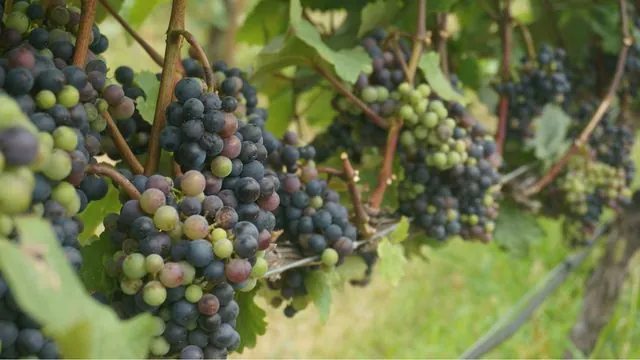
Grape Ingredient May Revolutionize Chemotherapy: A Game-Changer for Cancer Patients?
2025-01-02
Author: Arjun
Introduction
In a groundbreaking new study, researchers have unveiled the potential benefits of Oleanolic Acid—an acid found in grapes— as a powerful enhancer of chemotherapy effectiveness, particularly in synergy with the anti-cancer drug Camptothecin. This discovery could significantly alter the landscape of cancer treatments and offer a more efficient approach to battling this devastating disease.
Study Overview
The study, titled “Oleanolic Acid Modulates DNA Damage Response to Camptothecin Increasing Cancer Cell Death,” was recently published in the International Journal of Molecular Sciences (IJMS). Led by Prof. Antonio Giordano, a prominent figure in cancer research at the Sbarro Institute for Cancer Research and Molecular Medicine at Temple University, and Dr. Luigi Alfano from the Istituto Nazionale Tumori Fondazione Pascale in Naples, Italy, this research is part of a broader effort to discover new, effective cancer therapies derived from natural substances.
Research Methodology
The researchers conducted an in-depth examination using Nuclear Magnetic Resonance (NMR) and identified Oleanolic Acid in extracts from grape pomace. Their experiments revealed that when Oleanolic Acid is administered alongside Camptothecin, the dosage of the chemotherapeutic drug required to induce cancer cell death significantly decreases. Intriguingly, the inclusion of Oleanolic Acid did not compromise cell viability at the concentrations tested, suggesting that it could enhance the treatment without exacerbating toxicity.
Expert Opinions
“This is an important discovery for our group, highlighting the potential of natural extracts as a source of molecules for cancer therapy,” notes Dr. Alfano. “By incorporating Oleanolic Acid, we may be able to lower the concentration of Camptothecin needed to achieve effective anti-cancer results.”
Prof. Giordano adds, “The ability to utilize lower doses of chemotherapy drugs not only suggests increased effectiveness but may also lead to a reduction in adverse side effects associated with traditional treatment regimes. This could lead to a more tolerable experience for patients, marking a significant step forward in cancer care.”
Historical Context
The research group has a history of pioneering discoveries, including studies on capsaicin’s role in enhancing mesothelioma treatment and investigations into genetic targets for reducing tumor growth in glioblastoma. Their continual focus on leveraging natural compounds for cancer therapy is paving the way for new treatment modalities that could change patient outcomes.
Conclusion
With these promising findings, the future of chemotherapy might be a lot more hopeful—offering patients not just longer lives but also a better quality of life while they undergo treatment. As the research progresses, the medical community waits eagerly for further developments that could stem from this innovative blend of natural compounds and traditional chemotherapy drugs.




 Brasil (PT)
Brasil (PT)
 Canada (EN)
Canada (EN)
 Chile (ES)
Chile (ES)
 Česko (CS)
Česko (CS)
 대한민국 (KO)
대한민국 (KO)
 España (ES)
España (ES)
 France (FR)
France (FR)
 Hong Kong (EN)
Hong Kong (EN)
 Italia (IT)
Italia (IT)
 日本 (JA)
日本 (JA)
 Magyarország (HU)
Magyarország (HU)
 Norge (NO)
Norge (NO)
 Polska (PL)
Polska (PL)
 Schweiz (DE)
Schweiz (DE)
 Singapore (EN)
Singapore (EN)
 Sverige (SV)
Sverige (SV)
 Suomi (FI)
Suomi (FI)
 Türkiye (TR)
Türkiye (TR)